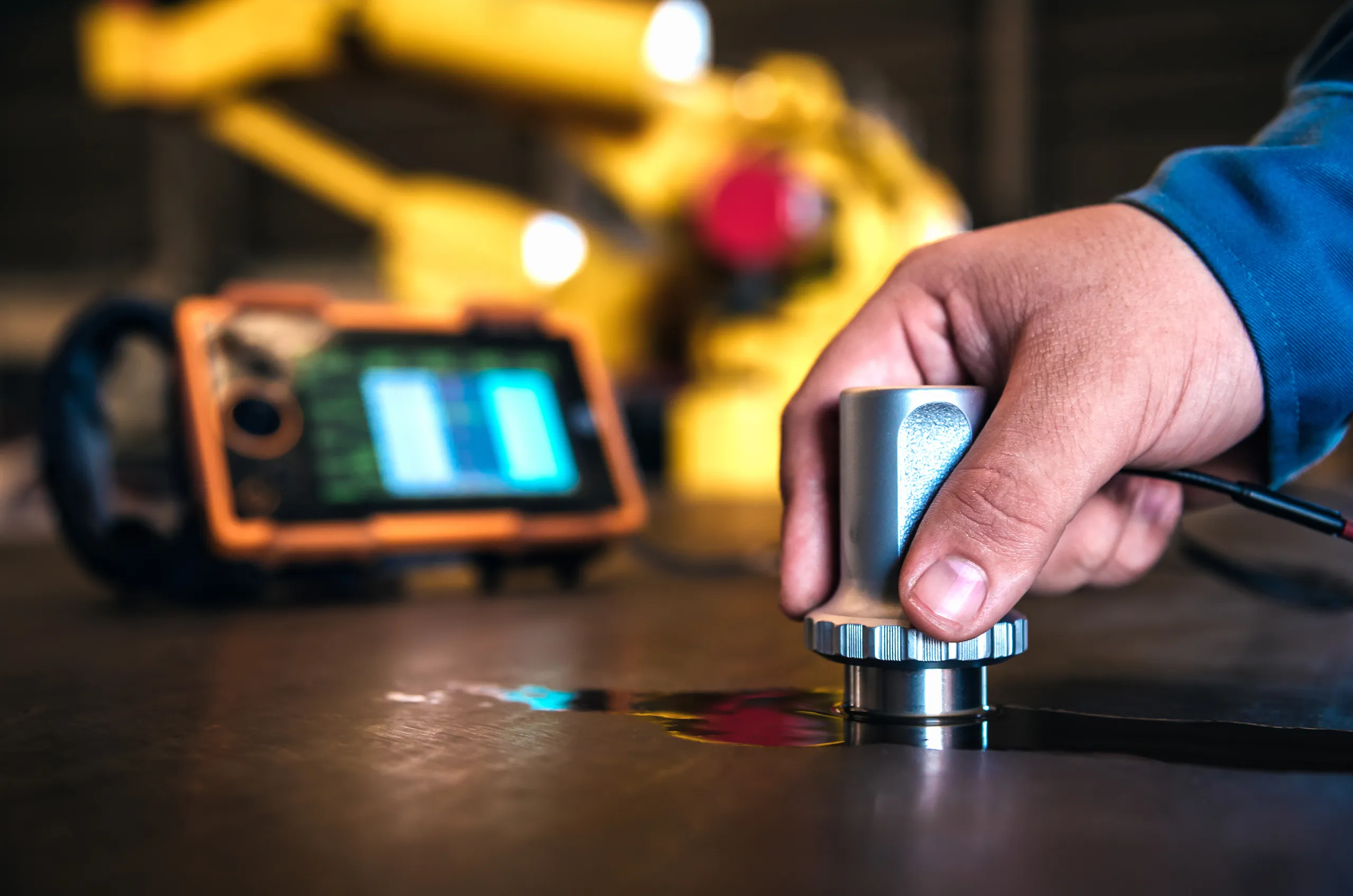IEC 61010 Safety Non Destructive Testing of Vehicle Measurement Devices
The International Electrotechnical Commission (IEC) standard IEC 61010 is a comprehensive set of guidelines designed to ensure the safety, accuracy, and reliability of electrical equipment used in various industries. Within this framework, IEC 61010 Safety Non Destructive Testing specifically addresses the non-destructive testing (NDT) requirements for vehicle measurement devices.
Non-Destructive Testing (NDT) plays a crucial role in ensuring that vehicles and their components meet safety standards without damaging them. This service is particularly important in automotive manufacturing, where precision and reliability are paramount. By adhering to IEC 61010, manufacturers can guarantee that measurement devices used in the production process are free from defects that could compromise vehicle performance or safety.
The testing process involves inspecting components for flaws, damage, or other anomalies without altering their original state. This is especially critical for automotive measurement devices where even minor discrepancies can lead to significant issues down the line. The IEC 61010 standard provides a robust framework that ensures consistent and reliable NDT practices.
The scope of this service includes not only the inspection but also the calibration and validation processes. Calibration is essential as it ensures that measurement devices provide accurate readings, while validation confirms that these devices meet specified performance criteria under specific conditions. This alignment with IEC standards enhances trust in the accuracy and reliability of automotive components.
Our laboratory employs advanced non-destructive testing techniques such as magnetic particle inspection (MPI), ultrasonic testing (UT), radiographic examination (RT), and eddy current testing (ET). These methods are chosen based on their suitability for detecting specific types of defects, ensuring that no aspect of vehicle measurement devices is overlooked.
The importance of this service cannot be overstated. In the automotive sector, where precision and reliability are critical, any deviation from expected standards can lead to safety hazards or operational inefficiencies. By adhering to IEC 61010 guidelines, we ensure that all testing processes meet the highest industry standards.
Our team of experts is well-versed in these standards and uses state-of-the-art equipment to perform rigorous inspections. This ensures that every vehicle measurement device undergoes thorough scrutiny before it reaches the production line or final assembly stage. The result is a higher level of confidence in the quality and safety of automotive components.
IEC 61010 compliance also extends beyond just the immediate testing process. It sets a benchmark for ongoing quality control, ensuring that all measurement devices continue to meet stringent standards throughout their lifecycle. This continuous monitoring not only enhances product reliability but also contributes to overall operational efficiency within manufacturing facilities.
In summary, IEC 61010 Safety Non Destructive Testing is essential for maintaining the highest levels of safety and accuracy in automotive measurement devices. By adhering strictly to this standard, we provide a service that ensures not only compliance with international regulations but also enhances the overall quality and reliability of vehicles.
Why It Matters
The importance of IEC 61010 Safety Non Destructive Testing in automotive manufacturing cannot be overstated. Ensuring that measurement devices used within this industry are free from defects is critical for several reasons:
Enhanced Vehicle Reliability: Accurate and reliable vehicle measurement devices contribute to the overall quality of vehicles, reducing the risk of malfunctions or failures during operation.
Compliance with Standards: Adhering to IEC 61010 ensures that all testing processes comply with international standards, thereby facilitating smoother trade and regulatory compliance.
Improved Safety: Non-destructive testing helps identify potential hazards early in the production process, minimizing risks associated with defective components entering the market.
Operational Efficiency: By ensuring that measurement devices perform accurately and consistently, this service enhances overall manufacturing efficiency and reduces downtime.
In essence, IEC 61010 Safety Non Destructive Testing is not just a procedural requirement; it is an integral part of maintaining the highest standards in automotive manufacturing. It ensures that every vehicle measurement device meets rigorous quality benchmarks, contributing to safer and more reliable vehicles.
International Acceptance and Recognition
The acceptance of IEC standards, including IEC 61010 Safety Non Destructive Testing, is widespread across the global automotive industry. This standard is recognized by major regulatory bodies worldwide for its rigorous approach to ensuring safety and reliability in electrical equipment.
Adhering to IEC 61010 not only ensures compliance with international standards but also enhances trust among stakeholders. It demonstrates a commitment to quality and safety, which is crucial for maintaining competitive advantage in the global market.
The recognition of this standard extends beyond just regulatory compliance; it also fosters innovation within manufacturing processes. By adhering to these guidelines, manufacturers can push boundaries and develop more advanced technologies while ensuring they meet stringent quality benchmarks.
Moreover, IEC 61010 Safety Non Destructive Testing is increasingly being adopted by leading automotive companies as part of their quality management systems. This adoption reflects a growing awareness of the importance of precision and reliability in the manufacturing process.
In conclusion, the international acceptance and recognition of IEC standards, particularly IEC 61010 Safety Non Destructive Testing, underscore its significance within the automotive sector. It ensures that measurement devices used in this industry meet the highest quality standards, contributing to safer and more reliable vehicles on a global scale.





